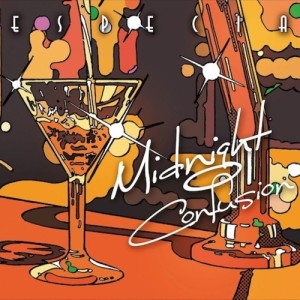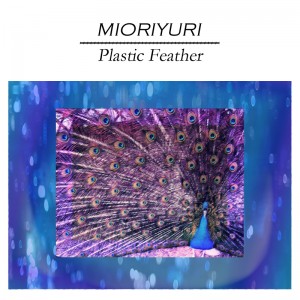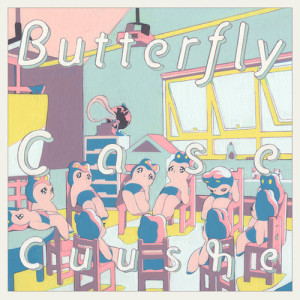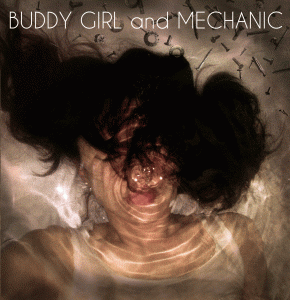Make Believe Melodies’ Best Albums Of The Year: 20-11

Photoshop scares me, so I’m mailing it in with my favorite character of the year holding a guitar.
Back in 2011 when I published this list (remember when I skipped doing this last year? Best album was from MiChi, best song was from…AKB48), a question that writer James Hadfield posed to me was…how many of these would actually make it on a general top ten list? Like, including non-Japanese releases? My answer…two, the albums in the first and second positions. Neither would be the actual #1 overall.
This year, the list of all my favorite music would probably feature mainly Japanese releases. Now, to be fair, I’m way more focused on what comes out in Japan in 2013 than I was in 2011…but I really do believe the past 12 months have been especially strong for Japanese music in general, especially when compared to other nation’s output this year. If nothing else, I do think this is the strongest year of music I’ve heard since starting this blog. So I’ve gone and made a list of my favorite (“our best” if you will) Japanese albums of the year. It was very very very hard narrowing this down, with so many great releases coming from every direction…but here’s what stuck.
Numbers 20-11 will appear on this blog, while 10-1 will actually be published on another website, which I will link to. We will also have an “honorable mentions/interesting stuff” post to round it all out. Enjoy!
20. Various Artists Upwards And Onwards

Shortly after this compilation, netlabel Ano(t)raks spent their time hunting down new names and creating country-spanning indie-pop compilation albums, featuring new names galore. Until releasing Post Modern Team’s (very good!) debut album late in 2013, the imprint felt like they were intent on hunting down every undiscovered twee band and showing them to the world in .zip form. So Upwards And Onwards feels like a special collection, a last gasp for Japan’s indie-pop scene featuring many names who made it seem like a “thing” over the last two years. A lot of the artists featured here released their own albums in 2013, but those often felt a little too long. Many of these outfits sound best as quick blasts. See the catchy simplicity of Boyish’s murky “Obvious,” the darty “Someday” by Post Modern Team and the goofy fun of Foodie’s “Make It, Break It.” Kai Takahashi would shine as a more traditional twee vocalist later in the year, but here he crafted a sunny afternoon electronic jam, positioning him as one of the year’s most promising young producers. Canopies And Drapes was quiet in 2013, so it was nice to hear her voice on a song as well…even if a new name like Jam The Mod stole the show with the stunning eight-minute “2nd Rainbows.” Ano(t)raks would try blazing new paths later in the year…this just sounds like a celebration.
19. Especia Midnight Confusion

There are a total of three original songs on this “album,” the rest of the disc stuffed with instrumentals and remixes. But fuck it…nobody in Japan released a pop song better than “Midnight Confusion” this year, and the fact they could include two super strong songs alongside it make this a lock for the top twenty as far as I’m concerned. I’ll spill more words on the title track later, but all credit to the folks behind this Osaka idol-pop group’s sound, carving out a retro-leaning sound that doesn’t give itself over (entirely) to stereotype. “XO” is a late-night piano bar lament (with sax!) while the other new track is a glistening, chimey bouncer that’s not quite as showy as “Midnight Confusion,” but every bit as catchy (with sax!). But seriously…Especia’s entire identity seems to be “the idol-group with KILLER saxophone solos,” and I’m ok with this. Oh, added bonus! The remixes are great too, highlighted by city-pop lover Greeen Linez nailing it.
18. Sapphire Slows Allegoria

It swelters and pulses, urging you onto a dancefloor lit by only nearby neon signs. It encourages you to let loose, but even at its loosest and most swinging a bad feeling remains in your bones. It’s that voice, mainly…always near your ear but seemingly coming from the far back. Identifiable words sometimes make it through, but for the most part, it just bleeds together with the synths and rinky-dink beats, making the good time you were previously having feel wrong. Your hairs raise up…but you can’t walk away.
17. Mioriyuri Plastic Feather

Not content with the best Tweet of 2013 (and the runner-up Tweet of the year), beat-making duo Mioriyuri also came out of practically nowhere to release one of the strongest debut album from anyone this year. Finding a comparison to Plastic Feather isn’t easy…cuts like “Gulfy” and the sweaty “Miti” bring to mind American producer Clams Casino, but he’s never gotten as foreboding as this pair get on shiver-starter “You Are Still Inside Me” or the sex-dream-gone-menacing “Love Like Ice.” And he…and, like, a lot of producers falling in the “hip-hop beatmaker” sphere…has never sounded jubilant as Mioriyuri do on “Twinkiez,” a tune that practically glows. Still, the biggest surprise to me is that nobody tried rapping over any of these beats, as they are among the finest instrumentals I’ve heard anywhere this year. Nonetheless, hell of a start.
16. Kaela Kimura Sync

Although not technically released in 2013…rather, in the dead zone that is late December, when year-end lists are already starting to cool, Sync managed to stick around the entire year. Sync isn’t Kaela Kimura’s breakthrough, but it should be the album to cement her as one of the more creative pop artists in Japan today after the 2011 stunner 8Eight8. Sync highlights her versatility, Kimura choosing to have almost every song produced and arranged by a different person (only two people get more than one number). And, stylistically, the album is all over the place – not uncommon for Kimura, whose albums always seem like a collage of what’s hip in J-Pop, but more daring this time around. There are weak moments – the sleepy pair of “Sun Shower” and “Coffee,” and the album’s one stinker, a lazy cover of “Hello Goodbye” produced by Jim O’Rourke, who most have needed some extra scratch to cover his electricity bill that month – but Sync proves to be a strong listen, from the fidgety electro-pop of “Mamireru” and “So I” to rockers like “My Way” to easy-breezy “Cherry Blossom.” It also ended up with the year’s best commercial tie-in song, and a reminder why we should show no mercy for “Mirai No Museum” – her “Wonder Volt” was commissioned for the fucking Frankenweenie Japanese end credits, yet Kimura uses the opportunity to create one of the weirdest songs in her catalog.
15. Buddy Girl And Mechanic Buddy Girl And Mechanic
In another year, this probably could have taken the top spot, as it fills the role on this list once occupied by She Talks Silence and Miila And The Geeks…who topped this blog’s previous end-of-year lists. It’s 2013’s most unsettling listen, a lurching shadow-dweller of an album that rarely ever takes a second to sound normal. The seven-minute opener starts skeletal as can be, before evolving into a fidgety sorta-Krautrock burner featuring echo-heavy vocals. It doesn’t sound intentionally creepy…that would be too easy. Most of the time, Buddy Girl And Mechanic’s songs sound like they are being held together with clear tape, the pieces dangling around (“Sexy,” the especially sparse “Buddy My Cloud”). Regardless of where it falls here, it’s a gem of an album.
14. Homecomings Homecoming With Me?

I got a Facebook message from a friend who I had been particularly shitty about keeping in touch with earlier this year, a person who means a lot to me but who left Japan. After apologizing for not getting back sooner (I truly did!), we got to talk about music. “Jah, you really got into anime rave music, didn’t you?” he wrote. He was write…some of my favorite music this year came from artists influenced by anime and the culture around it, and I spend a lot of time hanging out at Vocaloid club events and anime raves (went to one last Saturday!). Everyone on Maltine deserves some attention, even if I couldn’t peg one album they put out as making the top 20. My friend correctly noticed that what I liked in 2013 was a lot different than what I used to before.
But old habits die hard, especially when an album like Homecoming With Me? zips by.
Kyoto’s Homecomings can practically be created by twee algorithm. This quartet offers no new wrinkles or sudden swerves to indie-pop music…they can be linked to The Field Mice or Heavenly or Tiger Trap or whoever you want to pull out of your cardigan pocket. This is pure indie-pop pleasure, and I love it. Homecomings don’t wast anyone’s time, instead creating jogging verses that lead into ear-worm choruses overflowing with ennui (oh, and they are killer harmonizers). See indie-pop gems “You Never Kiss” and “Sunday,” wherein the still-college-enrolled-in-college outfit study the history of indie-pop and replicate it magnificently. Simple, sweet…and Homecomings stick with you. I’ll always have a place in my heart for this stuff.
13. Cuushe Butterfly Case

“I had the craziest dream last night,” a friend tells you over brunch, and you brace yourself for a wacky tale full of bizarre imagery and lols. Cuushe tells you that, and then she stares into your eyes and says “I love you.” Her label, Flau, and her have been perfecting her brand of dream-pop for some time now, yet what’s most striking about the music on Butterfly Case is how direct everything sounds. Every synth here sounds intimate, even when Cuushe puts on her own bedroom firework display on “Butterfly.” Every sounds blurs together, which manages to contain every simple word that comes from Cuushe. She is, wisely, not verbose, given these close quarters…the lyrics that emerge from the haze are simple sentiments that, when repeated many times, hit even harder. Which is especially true on the stunning “I Love You,” where she turns those three words into a mantra.
12. Sotaisei Riron Town Age

It’s a testament to how strong Town Age is sonically that you don’t have to understand a word of what Sotaisei Riron sing about to be drawn into it. Despite the fact that Etsuko Yakushimaru’s lyrics…previously often coming from the perspective of teenage girls, and veering towards the fantastical and sci-fi friendly…have been this group’s calling card since they formed. And look, in five years time, this could be ten spots higher or off the list entirely…but for now, Sotaisei Riron’s latest album stays because of how damn good it sounds. The group sound as dialed-in as ever, guitars and drums gracefully gliding over one another, but Town Age finds the band introducing some disconcerting sonic elements too. Opening track “Shanghai-an” begins with recorder, as if a kindergarten kid wandered in and the band decided to record it, before letting various random knick-knacks sound off. The final song here features some of the best, pulsating synths they’ve ever dabbled in, while highlight “YOU&IDOL” turns the steel drum into a mysterious presence on a song that seems to be coming from the perspective of an idol otaku. More than anything, though, is Yakushimaru’s squiggle of a voice, which might not show much range, but I’ve never heard anyone use a monotone as well as she does.
11. Hotel Mexico Her Decorated Post Love

This should be a coronation, not a band obituary. It shouldn’t feel like I’m bumping up Her Decorated Post Love up to just outside the top ten because it will be the last album (most likely) from one of the best Japanese bands of the last few years. Kyoto’s Hotel Mexico called it quits this past fall, after releasing a stellar debut single in “It’s Twinkle,” and a pretty good first album. And, in winter of 2013, this album. Heck of a final bow, right?
The thing is, as a conclusion for Hotel Mexico, Post Love sucks. Their second full-length was an overall improvement of everything introduced on their debut album – the music itself sounded more polished and less likely to use the word “chillwave” as an excuse for what could at times sound half-baked. Songs like “Boy” added extra force to that mid-day swelter, without abandoning any of the intriguing elements that made them jump out in the first place (sticking with that song, listen to those muffled vocals, how they drift in tandem with the music so well). It sounded smoother, more confident – check the guitar and bass lines on “G For Good,” or how the lead singer adopts a deep, strange delivery for that track and opener “Suicide Of Pops.” More than anything else, the songs just sound better written, with all sorts of twists and turns. I still get chills hearing those deep hoots at the start of “A.I. In Dreams,” and the entirety of the longing “A Space In The Loveless Field.”
Post Love is the sound of a band hitting their stride, and that’s why I hate this as a conclusion for Hotel Mexico. This should be the set-up for something bigger, and group finding their confidence and then soldiering forward to take the next artistic leap.Instead, Post Love will be trapped in time as the sound of a band forever running forward, approaching a mountain that never comes.
